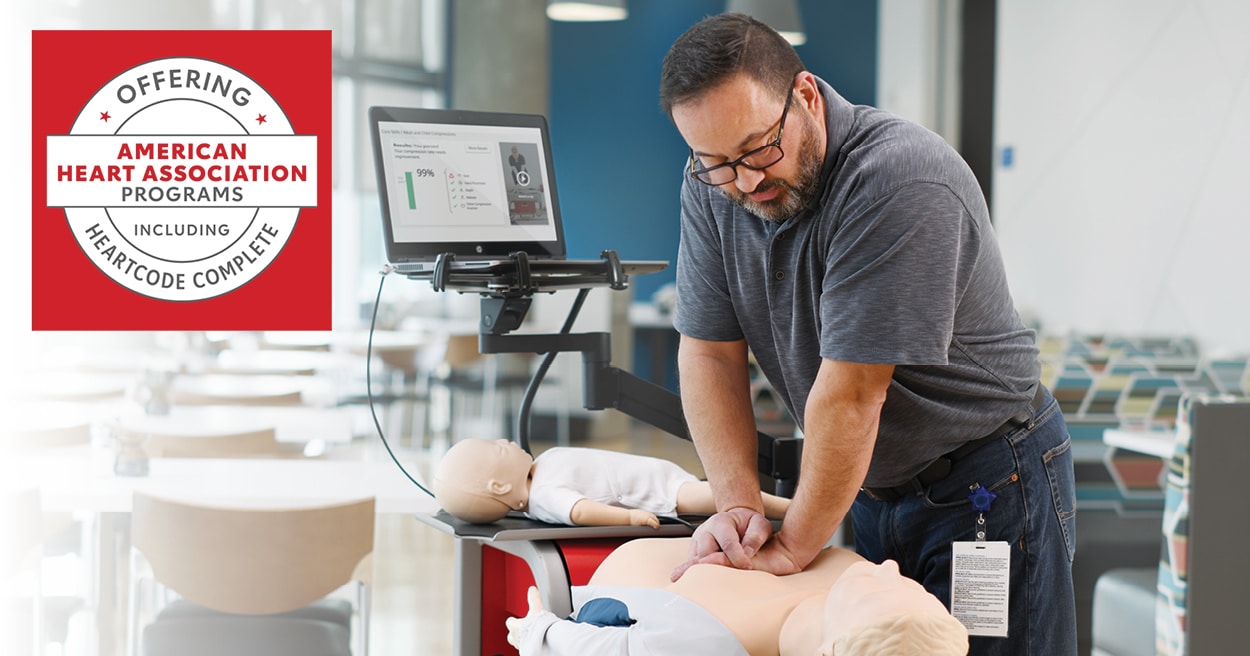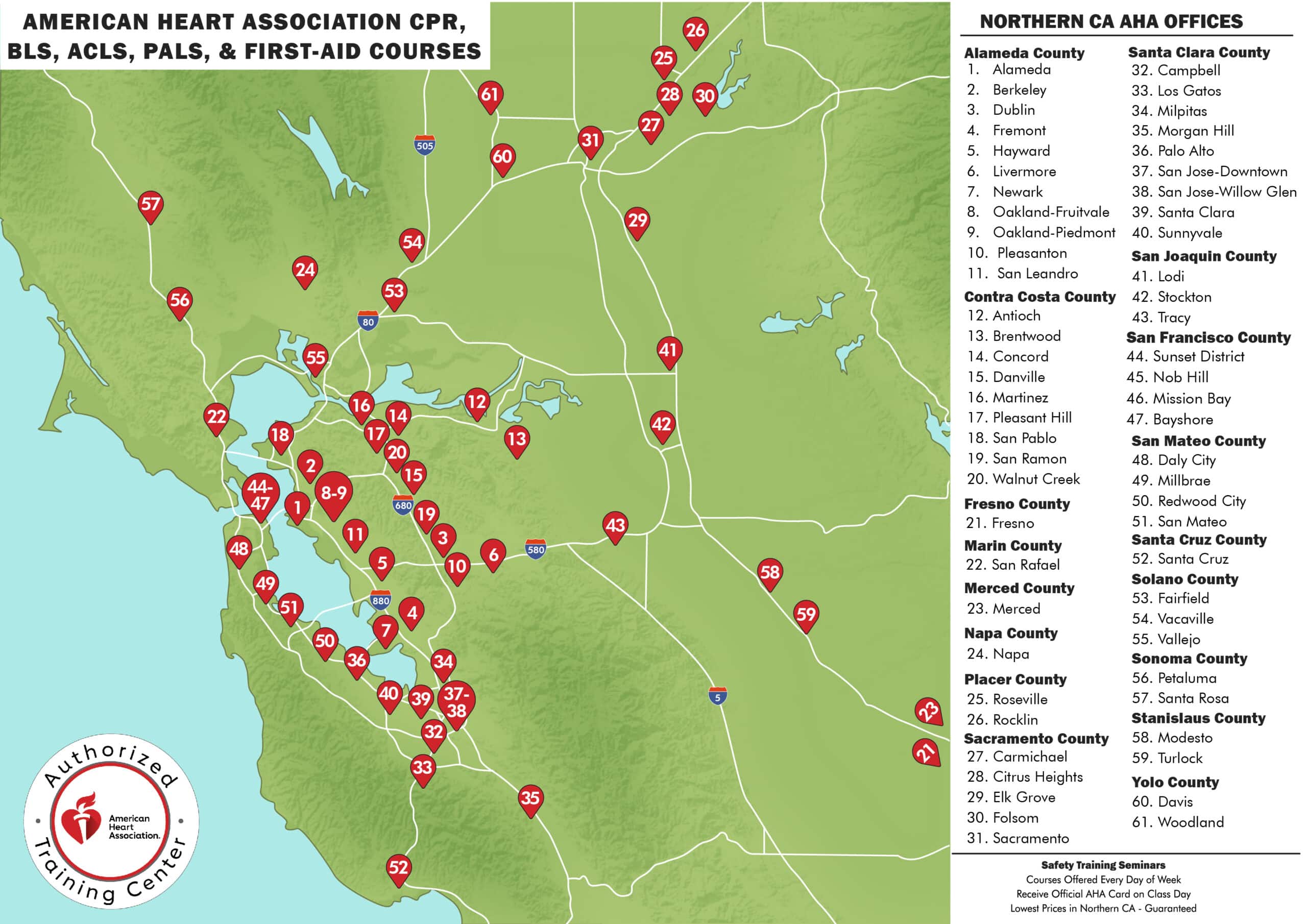
📌 Course Name: ACLS Advanced Cardiac Life Support (Initial or Renewal)
📖 Course Details
🔧 Optional Add-Ons: Enhance your certification with BLS, PALS, First Aid, Opioid Emergency Response, or Bloodborne Pathogens training
💰 Low Price Guarantee: Get the best prices in Concord. Found a lower price? Our price-matching policy ensures you’re always getting the best deal.
View Upcoming ACLS Courses in Concord (Clayton Rd)
View Upcoming ACLS Courses in Concord (Treat Blvd)
View Upcoming Courses in Concord, located at Clayton Rd or Treat Blvd

In Concord, California, the ability to respond effectively to cardiovascular emergencies is paramount for healthcare professionals across various specialties. American Heart Association (AHA) Advanced Cardiovascular Life Support (ACLS) classes provide vital training to equip healthcare providers with the knowledge and skills necessary to manage complex cardiac emergencies. In this article, we delve into the significance of ACLS classes in Concord, their accessibility, comprehensive training, and profound impact on emergency care within the community.
ACLS certification is essential for healthcare professionals involved in the care of patients experiencing cardiac arrest, stroke, or other life-threatening cardiovascular emergencies. ACLS classes provide participants with advanced training in the recognition and management of cardiac arrhythmias, acute coronary syndromes, stroke, and other critical conditions. By completing ACLS certification, healthcare providers gain the expertise needed to deliver high-quality, evidence-based care and improve patient outcomes in emergency situations.
ACLS classes in Concord are designed to accommodate the diverse needs and schedules of healthcare professionals working in various clinical settings. These classes are typically offered at different times and locations throughout the city, making them accessible to participants from hospitals, clinics, emergency medical services (EMS), and other healthcare facilities.
In addition to traditional classroom-based ACLS courses, online ACLS certification options provide flexibility for healthcare providers to complete the didactic portion of the training remotely. This blended learning approach combines online modules with hands-on skills practice and simulation-based scenarios, allowing participants to enhance their knowledge and skills in advanced cardiovascular life support effectively.
ACLS classes adhere to a comprehensive curriculum developed by the American Heart Association, incorporating the latest evidence-based guidelines and best practices in emergency cardiovascular care. Participants learn advanced cardiac life support algorithms, including:
ACLS classes incorporate hands-on skills practice to reinforce key concepts and enhance participants’ proficiency in advanced cardiovascular life support techniques. Participants have the opportunity to practice CPR, defibrillation, airway management, and medication administration on simulation manikins and other training equipment under the guidance of experienced instructors. This hands-on approach allows participants to develop the confidence and competence needed to perform ACLS interventions effectively in real-life emergencies.
Simulation-based scenarios are a critical component of ACLS training, allowing participants to apply their knowledge and skills in realistic clinical scenarios. Instructors facilitate simulated cardiac arrest and other emergency scenarios, challenging participants to assess and manage complex situations as part of a multidisciplinary team. These simulations provide valuable opportunities for teamwork, communication, and decision-making, helping participants prepare for the dynamic and high-pressure environment of real-life emergencies.
Upon successful completion of ACLS classes, participants receive ACLS certification, typically valid for two years. Certification demonstrates that healthcare providers have completed the required training and are competent to provide advanced cardiovascular life support in emergency situations.
To maintain ACLS certification, healthcare providers are required to undergo periodic recertification, typically every two years. ACLS recertification courses provide an opportunity for participants to review and refresh their ACLS knowledge and skills, learn about any updates or changes in guidelines, and demonstrate proficiency in advanced cardiovascular life support techniques.
In Concord, American Heart Association ACLS classes play a crucial role in enhancing emergency cardiovascular care and improving patient outcomes in critical situations. By equipping healthcare providers with advanced knowledge and skills in cardiovascular resuscitation, ACLS classes empower individuals to deliver timely and effective care to patients experiencing life-threatening cardiac emergencies.
With accessible and comprehensive ACLS training options available in Concord, healthcare providers have the opportunity to enhance their expertise in advanced cardiovascular life support and make a significant impact on emergency care within the community. By investing in ACLS education and certification, the healthcare community in Concord demonstrates its commitment to providing high-quality, evidence-based care for patients in need.
Who can benefit from ACLS classes in Concord?
ACLS classes are primarily designed for healthcare professionals, including physicians, nurses, paramedics, and other allied healthcare providers who are involved in the management of cardiac emergencies.
How long does it take to complete ACLS certification training?
The duration of ACLS certification training varies depending on the specific course provider and format. Typically, ACLS certification courses consist of both didactic instruction and hands-on skills practice and can range from one to two days.
Is ACLS certification recognized nationwide?
Yes, ACLS certification obtained in Concord is recognized nationwide and is widely accepted by healthcare organizations, employers, and regulatory bodies across the United States.
Safety Training Seminars CPR
5167 Clayton Road, Suite G, Concord, CA 94521
(925) 691-9780